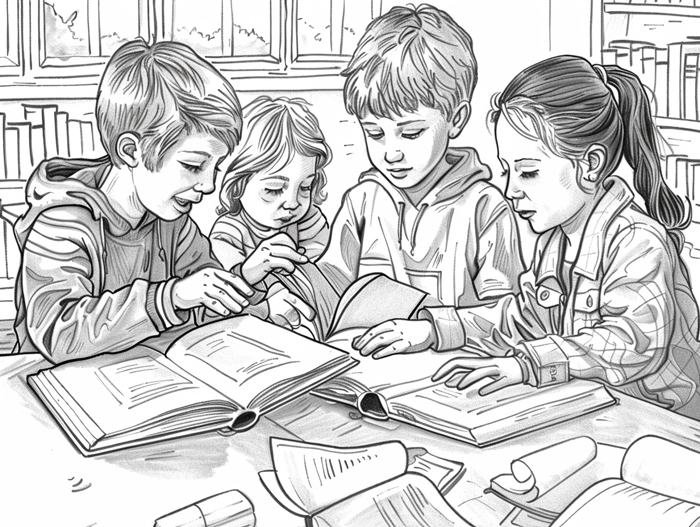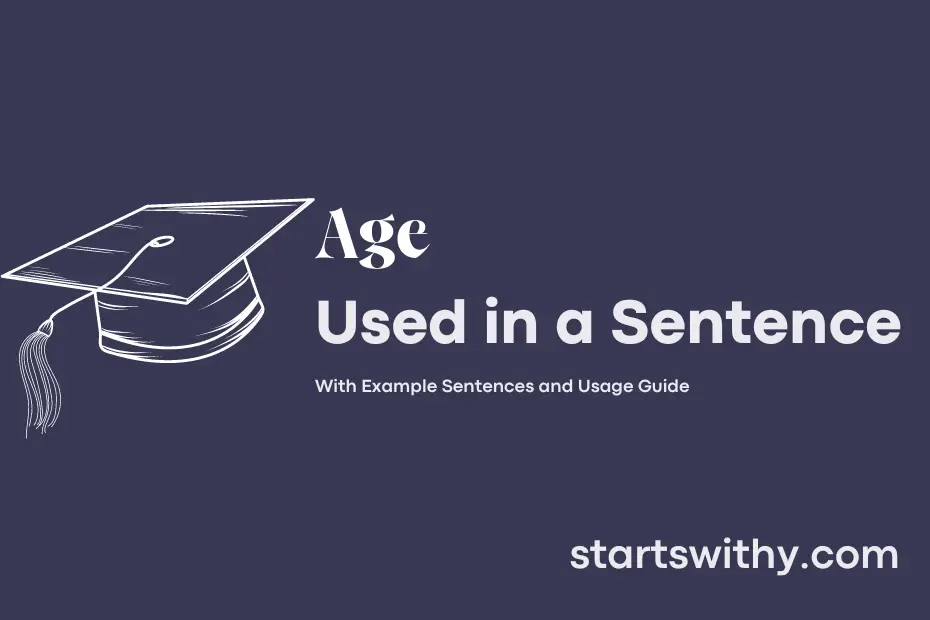Ever wonder how to properly use the term “age” in a sentence? The word “age” refers to the length of time that a person has lived or a thing has existed, commonly denoting a specific stage in life or historical era.
In English grammar, “age” can be used as both a noun and a verb, allowing for various sentence structures to convey age-related information. Understanding the nuances of employing “age” in sentences can enhance clarity and precision in communication.
7 Examples Of Age Used In a Sentence For Kids
- Age is how many years you have lived.
- We all grow and get older as we age.
- Babies are very young and have a small age.
- Grandparents have a large age because they have lived a long time.
- You can learn new things no matter what your age is.
- It is important to respect people of all ages.
- Different animals have different ages too.

14 Sentences with Age Examples
- Age is just a number, focus on your studies and career goals.
- It’s important to start saving and investing at a young age for a secure financial future.
- Balancing social life and academics can be challenging during college age.
- Explore internship opportunities to gain practical experience at a young age.
- It’s essential to maintain a healthy lifestyle to prevent premature signs of age.
- Joining clubs and organizations can help you build a strong network at a young age.
- Pursuing higher education at a young age can open up various career opportunities.
- Learning how to manage your time effectively is crucial during college age.
- Keep your mind active by reading books and engaging in intellectual discussions at a young age.
- Take advantage of scholarships and grants available for students your age.
- Surround yourself with positive influences and mentors who can guide you through this age of transition.
- Experiment with different career paths and subjects to find your passion at a young age.
- Don’t let peer pressure affect your decisions during this crucial age.
- Stay informed about current events and trends to become a well-rounded individual at a young age.

How To Use Age in Sentences?
Age is an important concept in English grammar. Age is used to indicate the length of time a person has lived or the stage of life they are in. Here are some tips on how to use age in a sentence:
- Subject-Verb Agreement: When using age as a subject in a sentence, make sure to match it with the correct verb form. For example, “She is 25 years old” or “They are the same age.”
- Comparisons: When comparing the age of two or more people, use comparative and superlative forms. For example, “She is older than her sister” or “He is the oldest in the group.”
- Possessive Form: When showing ownership or relationship with age, use the possessive form. For example, “His age is 30 years” or “Their age is not a barrier.”
- Articles: When introducing age into a sentence, consider whether to use articles like “a” or “an” before it. For example, “She is an ageless beauty” or “He is a wise agent.”
Remember to pay attention to the context in which you are using the word age to ensure that it fits naturally within your sentence. With practice, you will become more comfortable incorporating age into your everyday conversations and writing.

Conclusion
In conclusion, the use of sentences with the keyword “age” demonstrated how this term can be incorporated into various contexts to convey information about a person’s lifespan or the passage of time. These sentences highlighted different aspects such as someone’s age at different stages of life, the impact of age on physical abilities, and the relevance of age in societal norms and perceptions.
By showcasing the diversity of sentences featuring the keyword “age,” it becomes evident that age is a fundamental aspect of human existence that influences perspectives, relationships, and opportunities. Whether discussing someone’s age in a factual context or using it metaphorically to reflect on growth and experience, sentences with the keyword “age” can evoke thoughts about the inevitable process of aging and its significance in shaping individual identities and interactions within society.



